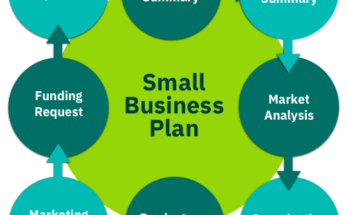Introduction
So you’re thinking of starting a business but not sure what type of business? You’ll want to understand all of the types of business structures, because this is your first step in becoming an entrepreneur. Each type of business has its advantages, disadvantages, and legal requirements.
In this article, we’ll review the main types of business, their advantages, disadvantages, as well as help. you figure out which one is best for your goals
What are the Types of Business?
The phrase “types of business” refers to the different types of legal structures and models that a company may operate under. The most common types of business are:
- Sole Proprietor
- Partnership
- Corporation
- Limited Liability Company (LLC)
- Co-op
- Nonprofit
Let’s look at each in detail.
1. Sole Proprietor

A sole proprietor is the most basic, and most common, type of business. A sole proprietor is a business that is owned and operated by one individual.
Pros:
- Easy and inexpensive to start
- You have total control and direct decision making
- Few regulations and less paperwork involved
Cons:
- Unlimited personal liability
- Difficult to raise capital
- Business ends when the owner dies or resigns
Best for: Freelancers, consultants, solo entrepreneurs.
2. Partnership

A partnership is a business owned by two or more individuals. There are two primary types of partnerships: general partnerships and limited partnerships.
Pros:
- Resources and responsibilities are shared
- Easy to start
- Skills and expertise are shared
Cons:
- Liability is shared (in general partnerships)
- Segments of disputes
- Profits are shared
Best for smaller businesses with two or more founders or a family-run business.
3. Corporation
A corporation is a separate legal entity from its owners and may own property, sue or be sued, or enter contracts.
Types of Corporations:
- C Corporation (C Corp): Although this type of corporation is taxed as a separate entity (double taxation), it is most beneficial for a larger company.
- S Corporation (S Corp): This type of corporation has restrictions on ownership and taxes, but it has benefits.
Pros:
- Shareholders have limited liability
- Greater funding opportunity (e.g. stock)
- Perpetual existence
Cons:
- Expense to form and continue
- More regulations than other forms of businesses
- Taxes (as in C Corp)
Best for a larger company or businesses that may need financing.
4. Limited Liability Company (LLC)

An LLC is special because it has the benefits of a corporation and a partnership or sole proprietorship. An LLC limits the owner’s liability by not allowing owners to be held accountable and provides flexibility for taxes.
Pros:
- Limited liability
- Less formalities
- Tax as “pass-through” for owners
Cons:
- More expensive than a sole proprietorship or general partnership
- Varies (in the U.S.) by state.
Most suitable for: Small and medium-sized businesses wanting legal protection without corporate complexity.
5. Cooperative
A cooperative (co-op) is a type of business that is owned and operated by a group of individuals for their collective benefit.
Advantages:
- Owned and controlled by members
- Profits are shared among members
- Decisions are made democratically
Disadvantages:
- Slower decision-making
- Difficult to attract outside investors
- Most suitable for: Agricultural, housing, or consumer-based businesses.
6. Nonprofit

A nonprofit is formed to conduct business for charitable, educational, religious, or cultural reasons, not to make a profit.
Advantages:
- Tax-exempt
- Can apply for grants and donations
- Serves members of the community
Disadvantages:
- Heavy regulation
- Funding options are limited
- Profits must be reinvested into the mission of the nonprofit
Most suitable for: An organization that has a social or community goal.
Business Type Comparison Chart
Business Type Ownership Liability Taxes Ideal For
Sole Proprietorship 1 person Unlimited liability Personal tax returns Freelancers or someone’s startup alone
Partnership 2 partners Shared liability Personal tax returns Co-founders or family business
Corporation Shareholders Limited liability Federal & state corporate taxes through dividends Large, scalable businesses
LLC 1 or more members Limited liability Flexible tax status Small to medium enterprises needing protection
Cooperative Members Shared or limited liability Varies by co-op Community or member-based group type of businesses
Nonprofit
Choosing the Right Kind of Business
The determining factor for which structure is best for you depends on how you:
- Want to operate financially
- Want to handle risk
- Want to handle ownership
- Want to maintain operational control
- Want to think about growth
If you are getting started with a simple structure, you want a sole proprietorship or an LLC. If you are looking for investment from outside the company or want to expand the business on a worldwide scale, you will want to consider a corporation.
Final Thought
It is important to understand the types of business before starting your company. Each type of ownership has different rules, benefits, and exposure to risks. This is an important step, so take your time and know that consulting with legal or financial professionals is perfectly fine.


